On October 27, 2025, within the walls of Poltava Polytechnic, an art therapeutic meeting took place titled “Primal Images Within Me – A Journey to the Feminine, Masculine, and Natural Principle”, conducted under the leadership of Candidate of Pedagogical Sciences, Associate Professor of the Department of Psychology and Pedagogy Maryna Teslenko and practical psychologist Olena Kryvenko, and aimed at restoring mental health through work with deep structures of the psyche. In conditions of prolonged stress caused by war, habitual cognitive mechanisms often prove insufficient for processing traumatic experience; therefore, the facilitators focused on methods of depth psychology and art therapy, which allow one to bypass psychological defences and work directly with unconscious material gently.
The group’s work began with an essential stage of psychoeducation grounded in the fundamental ideas of Carl Gustav Jung’s analytical psychology. Participants immersed themselves in the topic of the collective unconscious – the part of the psyche that stores humanity’s universal experiences. In the context of war, this understanding has a powerful therapeutic effect: it helps realise that individual experiences of pain, fear, loss, as well as hope and rebirth, are part of a broader archetypal plot. This removes the feeling of isolation and allows one to view one’s own trauma not as a dead end, but as a stage of transformation, relying on the collective wisdom that recovery always follows destruction.
The practical part of the workshop was built around working with the mandala – a sacred circle that, in art therapy, serves as an instrument of harmonisation and “containing” of emotions. Through the exercise “Archetypal Mandala”, participants explored the complex interaction of two polar energies inside themselves: Anima (the female principle responsible for feelings, intuition, and flexibility) and Animus (the male principle associated with logic, protection, and action). War often forces the psyche to disrupt this balance, hypertrophying the protective functions of the Animus and suppressing the Anima’s sensitivity. The art-therapeutic process of drawing allowed participants to visualise these energies in the planes of the earthly and the spiritual, to find their intersection points, and to integrate them into a holistic resource state where strength does not contradict tenderness.
A logical continuation of the internal work was the author’s technique “Nature Within Me”, based on principles of eco-psychology and metaphorical therapy. Turning to primal elements is one of the most effective ways to ground and restore vital forces. Participants were offered to choose a natural symbol – water, fire, earth, air, a mountain, or a tree – that resonates with their current state. The process of identification with a natural object and its verbal description allowed for the activation of the projection mechanism: transferring internal experiences onto an external image, feeling oneself a part of an extensive natural system, and “appropriating” for oneself the stability of a mountain, the flow of water, or the power of fire, finding in this a reliable existential support.
The meeting ended with a discussion in a “circle of trust”, where the experience gained was verbalised and integrated. Art therapy participants shared how working with images helped them reconnect with their own feelings, feel the power of “roots”, and find inner harmony even amid uncertainty. The event vividly demonstrated that art and archetypes are not just a means of self-expression, but an effective clinical instrument for healing war traumas, promoting post-traumatic growth and emotional stabilisation.
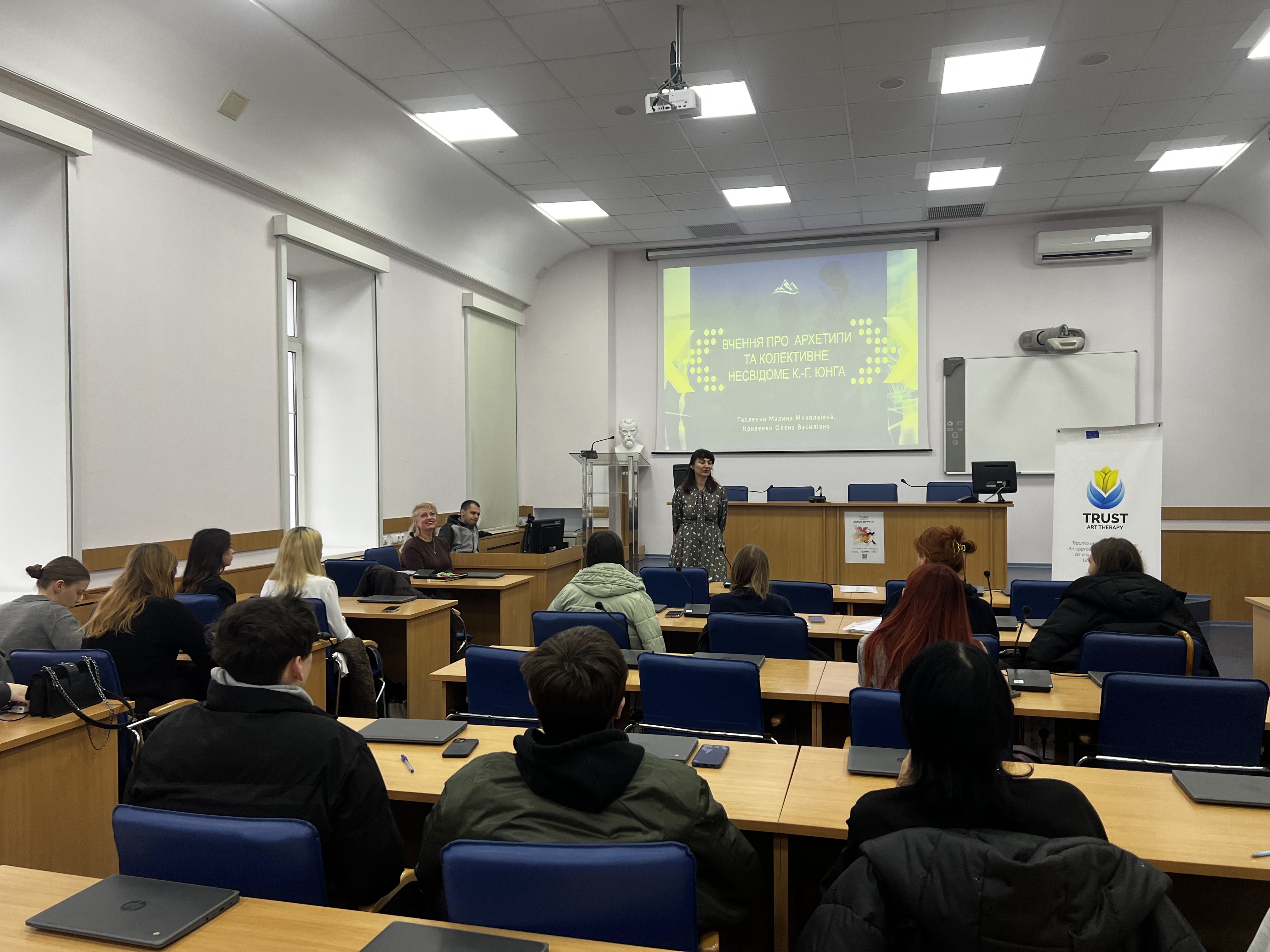
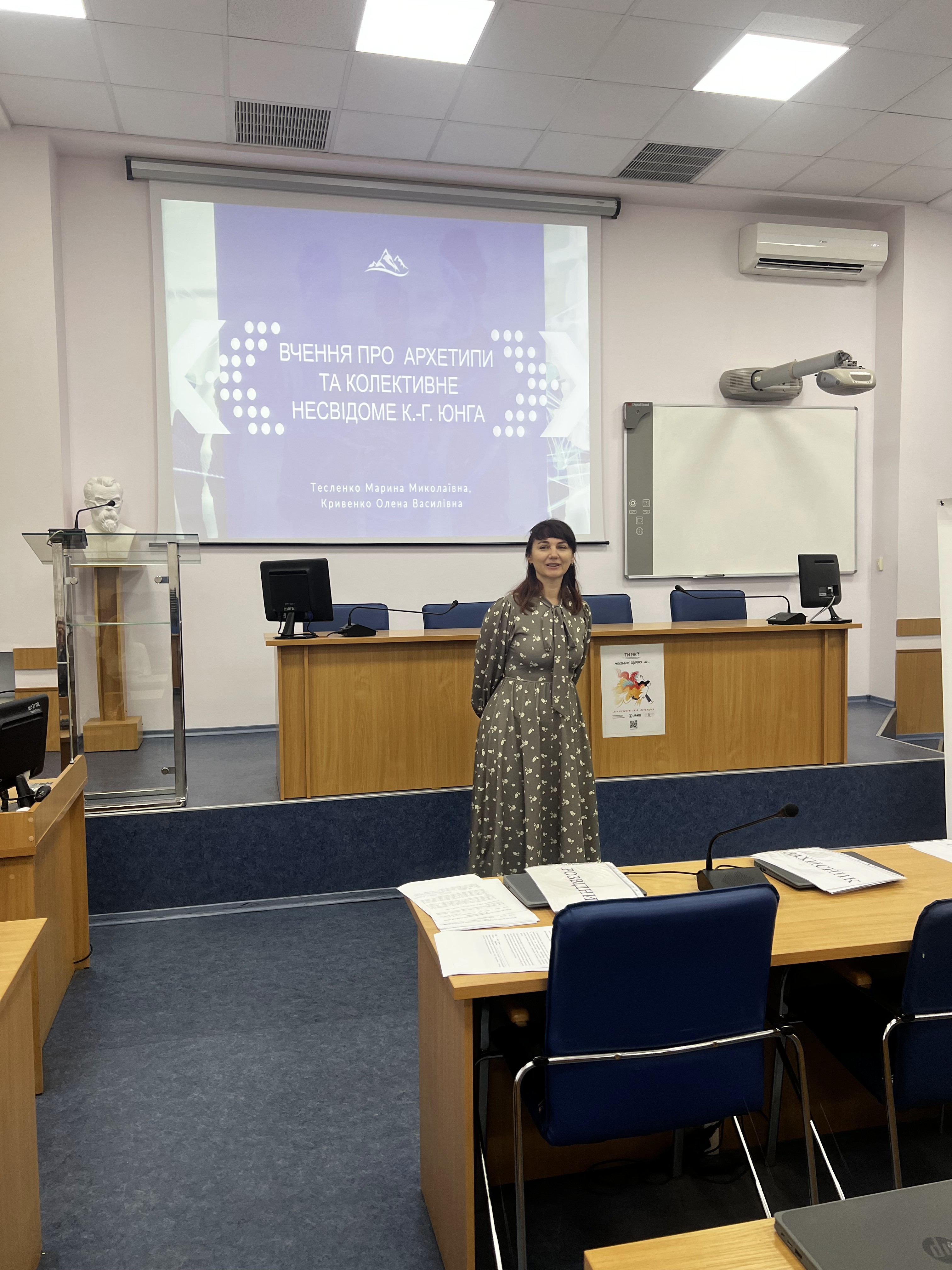
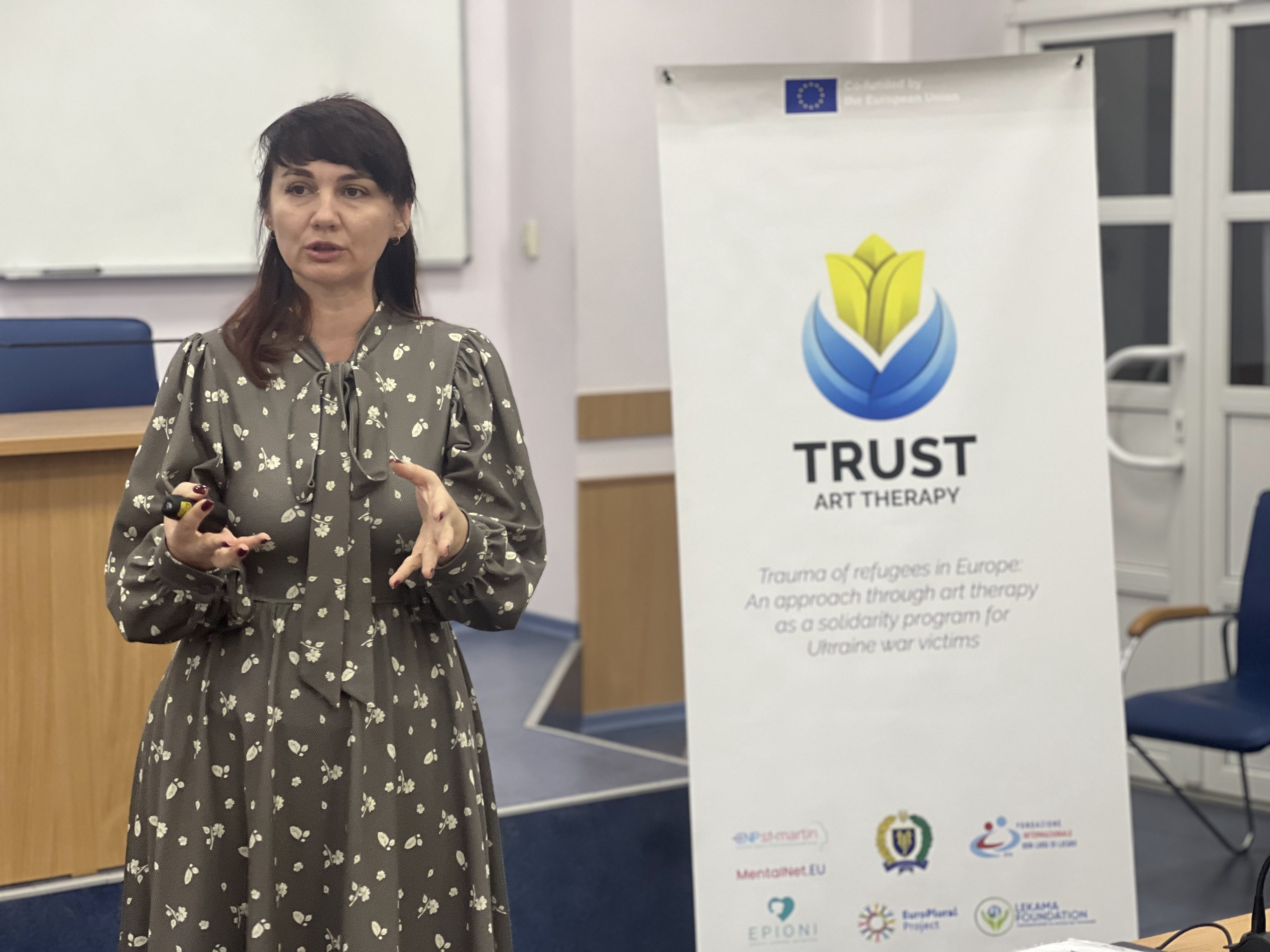
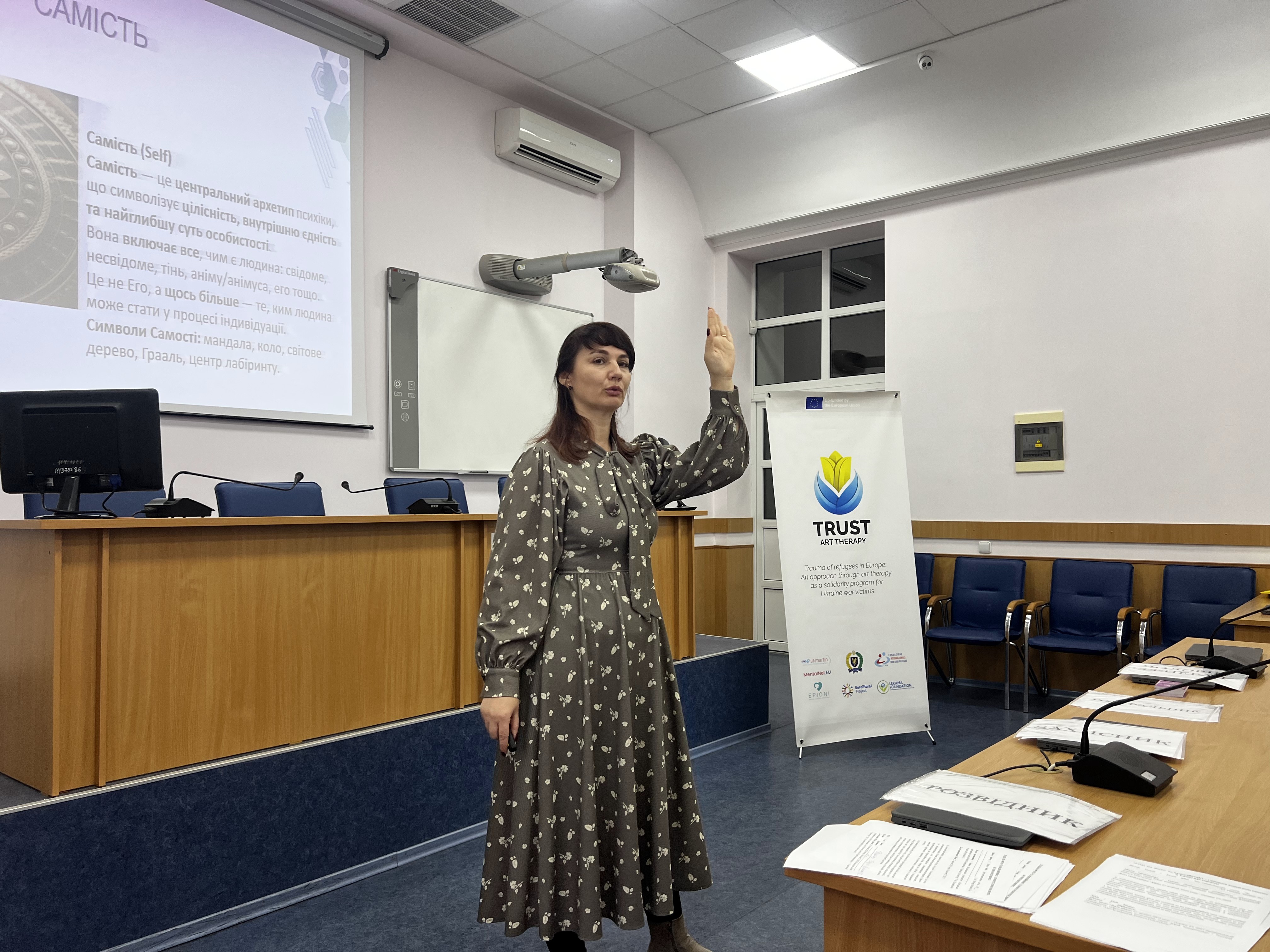

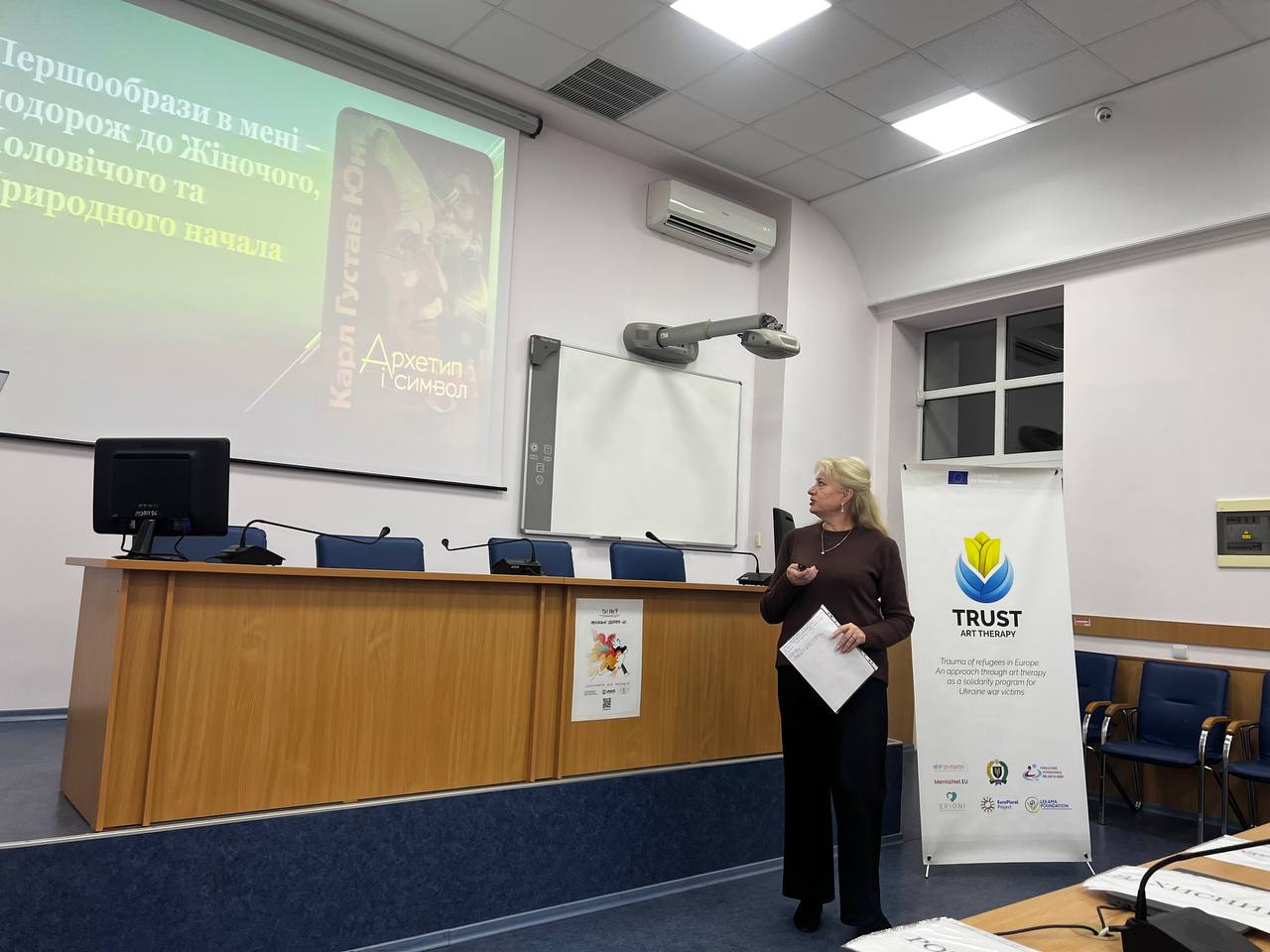
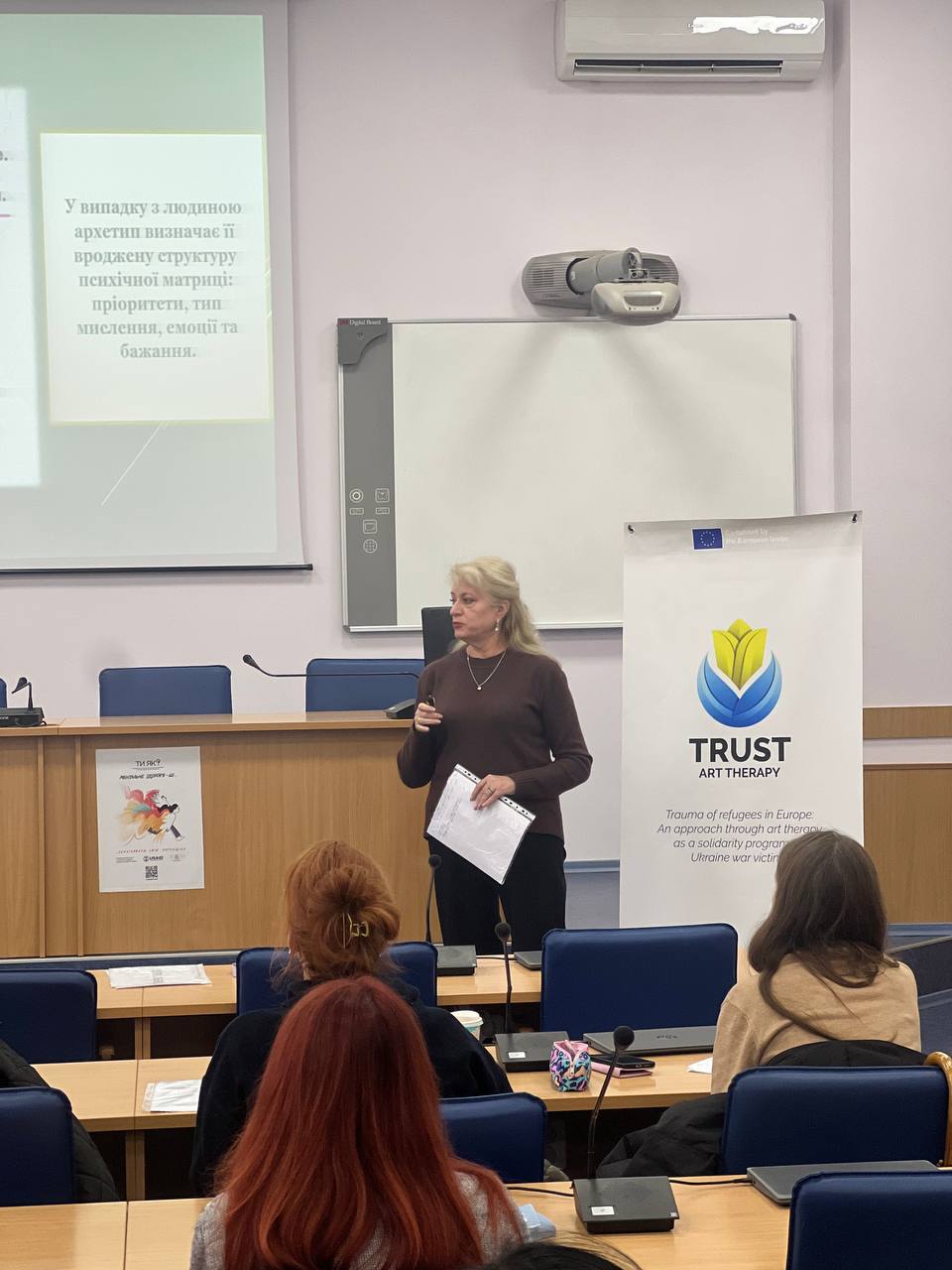
The event was held as part of the international, large-scale EU-funded Erasmus+ KA220-ADU project “TRUST” – Trauma of refugees in Europe: An approach through art therapy as a solidarity program for Ukraine war victims (Grant No. 2024-BE01-KA220-ADU-000257527).
The project title is decoded as follows:
TRUST
T – Trauma
R – Refugees
U – Ukraine
S – Solidarity
T – Therapy
The project is co-funded by the EU and led by the Centre Neuro Psychiatrique St-Martin from Belgium, in partnership with the National University “Yuri Kondratyuk Poltava Polytechnic” (Ukraine), Greek Carers Network EPIONI (Greece), Fondazione Don Luigi Di Liegro (Italy), Lekama Foundation (Luxembourg), EuroPlural Project (Portugal).
We express our sincere gratitude to our partners for their invaluable support, which makes it possible to implement such vitally important initiatives that bring the light of hope and healing to those who need it most.
It is worth noting that Poltava Polytechnic lecturers are eligible to participate in academic mobility and internship programs. Students can study abroad through Erasmus+ credit academic mobility grant programs for a semester or a full academic year at leading universities in Austria, Denmark, Estonia, Finland, Germany, Greenland, Latvia, Lithuania, the Netherlands, Norway, Poland, Portugal, Romania, Slovakia, Spain, and the Czech Republic.
For more detailed information regarding current internship, teaching, and academic mobility programs abroad, please get in touch with the International Relations Department (office 213-C, interoffice@nupp.edu.ua) or the International Relations Coordinator of the National University “Yuri Kondratyuk Poltava Polytechnic” – Ph.D. in Philology, Associate Professor of the Department of Germanic Philology and Translation, Anna Pavelieva (email: kunsite.zi@gmail.com, phone: +38-(095)-91-08-192).
Media Centre of
National University “Yuri Kondratyuk Poltava Polytechnic”



